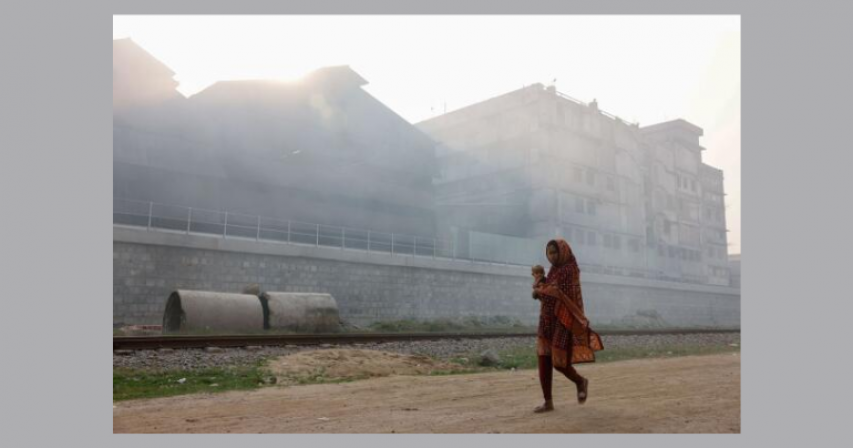Bangladesh, Pakistan and India bottom in air quality rankings in 2023, data shows

In 2023, Bangladesh, Pakistan, and India found themselves among the nations with the poorest air quality globally, as per data released on Tuesday. The concentration of PM2.5, harmful airborne particles, exceeded recommended levels significantly, with Bangladesh and India surpassing the World Health Organization's (WHO) guidelines by about 15 times.
According to the data, Bangladesh recorded an average PM2.5 concentration of 79.9 micrograms per cubic meter, while Pakistan reported 73.7 micrograms. The WHO standard advises no more than 5 micrograms of PM2.5 concentration.
Christi Chester Schroeder, the air quality science manager at IQAir, a Swiss air-monitoring organization, attributed the soaring PM2.5 levels in South Asia to a combination of climate conditions, geographic factors, and human activities. Factors such as agricultural practices, industrial emissions, and dense population contribute to the worsening air pollution situation in the region.
Schroeder expressed concerns that the situation might deteriorate further before any improvements occur. Bangladesh, which ranked fifth in air quality in 2022, witnessed approximately 20% of premature deaths due to air pollution, with associated healthcare costs accounting for 4%-5% of the country's GDP, stated Md Firoz Khan, an air pollution expert at Dhaka's North South University.
Similarly, India experienced an increase in pollution levels in 2023, with PM2.5 levels exceeding the WHO standard by approximately 11 times. New Delhi, the capital city of India, emerged as the worst-performing capital globally, with a PM2.5 concentration of 92.7 micrograms.
Even China witnessed a 6.3% rise in PM2.5 levels in 2023, marking a departure from five consecutive years of decline. Despite this, only a handful of countries, including Australia, Estonia, Finland, Grenada, Iceland, Mauritius, and New Zealand, managed to meet the WHO standards for air quality.
The data, sourced from over 30,000 monitoring stations across 134 countries and regions, highlighted significant gaps in air quality monitoring, with 39% of countries lacking public air quality monitoring systems. Christa Hasenkopf, the director of the Air Quality Life Index at the University of Chicago's Energy Policy Institute, emphasized the urgent need for a coordinated global effort to bridge these data gaps, particularly in regions where the health impacts of air pollution are most severe.
The report also noted the exclusion of Chad, previously the world's most polluted country in 2022, due to data issues. Similarly, Iran and Sudan were not included in the 2023 rankings. These omissions underscore the challenges in accurately assessing and addressing global air quality issues.
By: Sahiba Suri





Comments